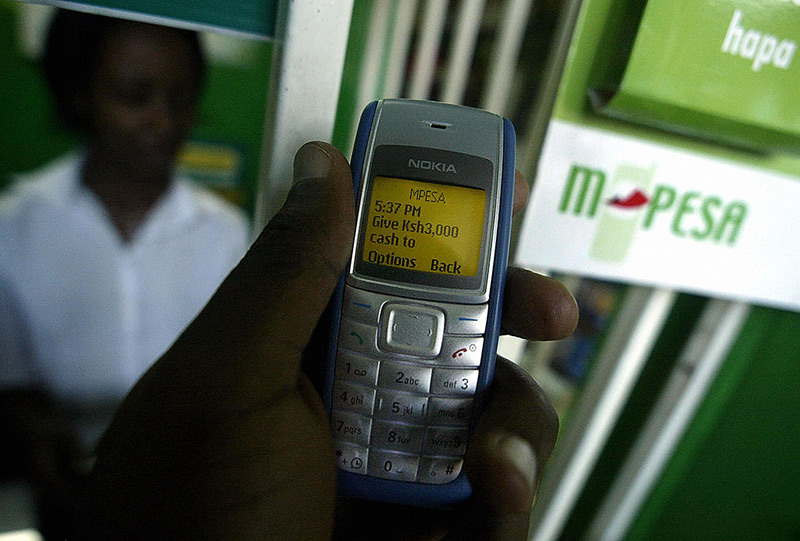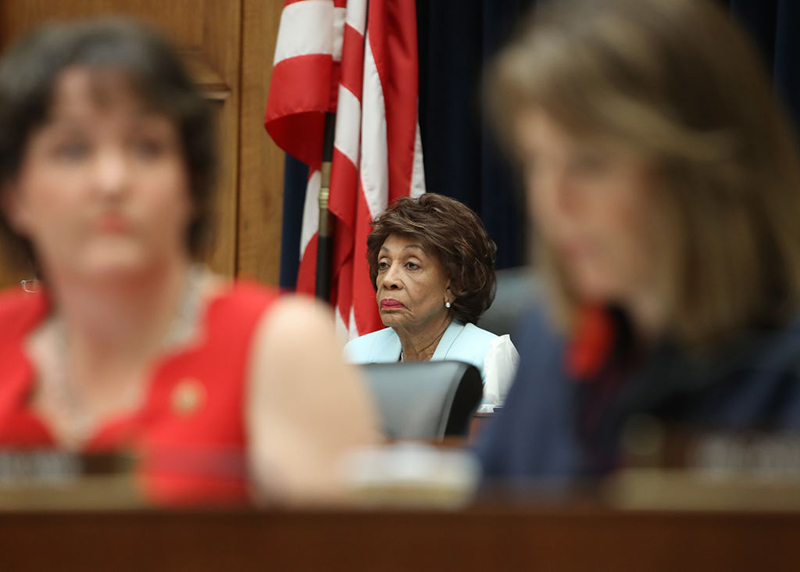Libra面临四大挑战
|
Facebook在盛大的加密货币启动仪式上夸下海口:Libra将让支付比以往任何时候都更加便利,并帮助17亿“未获得银行服务的”人享受到金融服务。 但Libra发布的声明并没有得到普遍的赞誉。监管方和行业观察人士对新加密货币做出的承诺(或者换个立场来看的话,甚至可称之为威胁)深感怀疑,而且理由是多方面的。 我们当然有理由认为Libra可能会成功,因为Facebook在全球有着无可匹敌的覆盖范围,而且显然也有能力劝说行业合作伙伴加入其中。但下文列举了Libra可能无法实现的几点原因: 数字支付 Facebook的博文宣布,公司计划推出的Colibra数字钱包——其实也就是能够让人们使用Libra的应用——承诺:“假以时日,我们希望为人们和企业提供额外的服务,例如通过单击按钮支付账单,通过扫码购买咖啡或无需携带现金或地铁通票便可搭乘公共交通。” 正如《卫报》(Guardian)的前任科技文章编辑查尔斯·亚瑟在推特(Twitter)上适时调侃的那样:这个功能虽然可能已经在Facebook本土市场美国实现,但就消费金融服务而言,它已经过时了。 这种感觉就像,你已经意识到,对于设计Facebook虚拟货币的美国人来说,无接触式支付在他们所生活的环境已经不是什么新鲜事。pic.twitter.com/pmTtyRGYYn — 查尔斯·亚瑟(@charlesarthur),2019年6月18日 在世界其他很多地区,人们已经习惯通过将智能手机放在识别器上来支付咖啡或搭乘交通工具。至于支付账单,目前有大量的方式通过使用普通货币来实现这一点,例如自动化的直接借记,以及包括瑞典应用Klarna在内的银行应用和金融科技服务。 向其他用户进行小额转账的功能呢?已经有不少了,其中包括PayPal和其Venmo应用。这并非是个新问题,而且解决方案早就有了。 未获得银行服务的用户 正如Facebook及时指出的那样,几乎全球半数的成年人都没有银行账户,发展中国家和女性中的这个数字更低。公司称,解决方案可能在于Colibra钱包。 其中一个问题在于,这些没有银行账户的人也没有智能手机。南非的科技行业观察人士托比·沙普沙克向《独行者日报》(Daily Maverick)透露:“即便人们有智能手机,获取数据的成本也会让人们望而却步。除非应用使用起来足够简单,能够便利地在系统中存钱或取钱,而且很容易理解,否则就已经处于劣势。” 长期以来,一些移动运营商一直在应对这个问题。其中一个典型案例就是肯尼亚由沃达丰支持的Safaricom。该公司在12年前推出了一个名为M-Pesa的移动银行服务。没有银行账户的客户也是M-Pesa的目标,他们甚至使用最原始的手机来获取或使用金融服务。在使用SIM卡验证其身份后,人们可以在无处不在的服务终端存取款。 |
Facebook’s big cryptocurrency reveal came with big promises: Libra will make payments more convenient than ever, and help 1.7 billion “unbanked” people access financial services. But the announcement of Libra has not been greeted with universal acclaim. Regulators and industry observers see a range of reasons to be deeply skeptical about what the new cryptocurrency promises or—depending on one’s standpoint—threatens. There are certainly reasons to believe Libra could be a success, namely Facebook’s unmatched global reach and its apparent ability to get industry partners on board. But here’s a breakdown of the reasons why Libra may not fly: Digital payments Facebook’s blog post announcing its planned Colibra digital wallet—essentially an app allowing people to use Libra—promises that “in time, we hope to offer additional services for people and businesses, like paying bills with the push of a button, buying a cup of coffee with the scan of a code or riding your local public transit without needing to carry cash or a metro pass.” As former Guardian tech editor Charles Arthur rightly scoffed on Twitter, this may be a function of the U.S., Facebook’s home market, being behind the times when it comes to consumer financial services. Tfw you realise that the Americans who designed Facebook’s cryptocurrency live in a world where contactless payments basically aren’t a thing pic.twitter.com/pmTtyRGYYn — Charles Arthur (@charlesarthur) June 18, 2019 In much of the rest of the world, people are used to tapping their smartphones on a reader to pay for a coffee or a ride on public transit. As for paying bills, there are myriad ways to achieve this online using regular currency, from automated direct debits to banking apps and financial technology services such as the Sweden-based app Klarna. How about passing money to other users with minimal fuss? Well, there’s already PayPal and its Venmo app for that, among many other alternatives. The problem is not new, and nor are the solutions. The unbanked As Facebook rightly points out, almost half of the world’s adults lack bank accounts, with figures being worse in developing countries and among women. The solution, it says, could lie in the Colibra wallet. One problem here is that many of those who lack bank accounts also lack smartphones. “Even if people own a smartphone, the cost of data can be prohibitive,” South African tech industry observer Toby Shapshak told the Daily Maverick. “Unless it is simple to use, simple to get cash in and out of the system and easy to understand, it’s already at a disadvantage.” Some mobile operators have already been tackling this problem for a long time, notably Kenya’s Vodafone-backed Safaricom, which launched a mobile banking service called M-Pesa a dozen years ago. M-Pesa also targets the unbanked, using even basic phones as a way to access and use financial services—people can deposit and withdraw funds from widespread kiosks, with their SIM card validating their identity. |

|
人们甚至可以使用各种各样的服务,从国外向M-Pesa用户的手机汇款。Facebook将Libra描述为一种能够避免高昂国际汇款费用的方式,这个问题倒是由来已久,但无独有偶,数年前人们就已经开始着手解决这一问题了。 M-Pesa目前已经进驻了很多国家,例如印度、南非,甚至一些东欧国家。有意思的是,沃达丰是即将运营新虚拟货币的Libra协会的成员之一,我们仍然不清楚这家运营商巨头是否已经看到了这两个系统之间相互影响的问题,亦或这家公司交1000万美元会费的目的就是为了留意事态的进展。(截至发稿之日,沃达丰并未对置评要求进行回复。) 此外,《金融时报》(Financial Times)对Libra首发的报道也是充满了冷嘲热讽,它指出,Facebook的新虚拟货币并未解决人们没有银行账户最常见原因:他们没有足够的钱存入银行,因此这是一个社会经济问题,而不是技术问题。 监管问题 Libra协会在发布材料中称“在Libra网络的早期开发过程中,其创始成员一直都在与当局通力合作,制定鼓励技术创新、维持最高消费保护标准的监管框架。”此言论基本上也就为监管方的勃然大怒埋下了伏笔。 这听起来就像是马克·扎克伯格在今年2月的声明中称,Facebook在隐私和虚假信息领域能够“遵守有意义的法规”。监管方和立法者通常会将自己看作是法规的制定者而不是接受方。 因此,大西洋两岸的监管方和决策者们均抨击了Libra项目。在美国,众议院金融服务委员会主席马克辛·沃特斯(加州民主党)要求Facebook在国会和监管方抽时间分析其影响之前,停止Libra项目的开发。沃特斯是民主党,但委员会的主管共和党众议员北卡罗莱州的帕特里克·麦克亨瑞亦同意沃特斯的观点。他警告说:“其中存在很多有待解决的问题,例如项目的广度和规模,如何才能与美国的全球金融监管框架保持一致。” |
People can even send money from abroad to an M-Pesa user’s phone, using a variety of services. Facebook is pitching Libra as a way to avoid high international remittance fees, which have traditionally been a problem, but again, people have already been solving this problem for a few years now. M-Pesa is now used in many countries from India to South Africa, and even in parts of Eastern Europe. Interestingly, Vodafone is one of the members of the Libra Association that will run the new cryptocurrency—it remains to be seen whether the carrier giant sees scope for interplay between the two systems, or whether it simply shelled out the Association’s $10 million membership fee in order to keep an eye on what’s going on there. (Vodafone had not, at the time of publication, responded to a request for comment.) Also, as the Financial Times has noted in its über-cynical coverage of Libra’s launch, Facebook’s new virtual currency does nothing to address the most common reason people don’t have bank accounts: they don’t have enough money to put in them. And that’s a socio-economic rather than technical problem. Regulatory pushback The Libra Association pretty much guaranteed the ire of regulators when it said in launch materials that “in the early development of the Libra network, its Founding Members are committed to working with authorities to shape a regulatory environment that encourages technological innovation while maintaining the highest standards of consumer protection.” That sounds a lot like Mark Zuckerberg’s February pronouncement that he is “open to meaningful regulation” for Facebook in the fields of privacy and disinformation. Regulators and lawmakers tend to see themselves as the givers of rules, not the takers. And so regulators and lawmakers on both sides of the Atlantic have pounced on the Libra project. In the U.S., House Financial Services Committee Chair Maxine Waters (D–Cali.) has asked Facebook to pause Libra’s development until Congress and regulators have had time to parse the implications. Waters is a Democrat, but the committee’s ranking Republican, Rep. Patrick McHenry of North Carolina, agrees with her, warning of “many open questions as to the scope and scale of the project and how it will conform to our global financial regulatory framework.” |

|
在欧洲,法国财政部部长布鲁诺·勒梅尔称,Libra成为传统货币替代物这件事“不能也绝对不允许发生”,而且敦促G7央行行长紧急调查该系统。英国央行的行长马克·卡尼还表示,像G7、国际货币基金组织和国际清算银行这样的机构应该以“协同的形式”来应对事态的发展。
他们可能会这么做。卡尼指出,“在这一领域任何可行的事物会很快系统化。”监管方不希望此事演变为亡羊补牢的游戏。
信任问题
勒梅尔还警告说,Facebook的Colibra钱包“甚至能让这家公司获得更多的数据,这一结果只会让我们更加坚定对这家互联网巨头加强监管的决心。”这也带来了最后一个问题:信任。Facebook在隐私承诺兑现方面的记录并不怎么好,因此这一次又会有什么区别呢?
此次,Facebook郑重承诺,公司在未经用户同意的情况下不会将来自于Colibra的财务数据用于广告目的。但公司如何才能得到用户的首肯,监管方对这一机制又有什么看法?别忘了,Facebook已经因为其征求用户同意的方式在欧洲遭到起诉,其征求同意的目的在于将用户数据用于向他们推送广告。
正如《财富》杂志的罗伯特·哈科特所指出的那样,Facebook坚持认为数据整合只有在用户明确决定加入后才会发生,而且这一点依然是不具有约束力的隐私政策。这是Facebook在Libra和Colibra推出一年之前所做的承诺。还记得Facebook是如何承诺自己绝不会合并WhatsApp与Facebook数据的吗?事实证明,这个承诺并不怎么值钱。鉴于Facebook可能会因为违背其他多个隐私承诺,而面临来自于联邦交易委员会的严厉斥责和巨额罚款,因此短时间内,Facebook在隐私方面的形象必然难以得到改观。
TechCrunch的乔什·康斯丁还注意到,Libra协会并没有主动对有意开发承载Libra的数字钱包的开发商进行审查。因此,尽管Facebook自家的Colibra钱包会具有很高的安全性,客户支持以及账号被盗之后的退款功能,效仿剑桥分析公司(Cambridge Analytica)而打造的影子虚拟货币在理论上也能够打造其自有的钱包,而消费者可能会因此而面临Libra货币损失的风险。
但上述任何疑点并不意味着Libra必然无法成功,再者,Facebook也有着无与伦比的覆盖面。然而,Libra也并非就是十拿九稳,Facebook有必要详细说明该系统如何能够实现其崇高目标。(财富中文网) 译者:艾伦 审校:夏林 |
In Europe, French Finance Minister Bruno Le Maire said it “can’t and must not happen” that Libra becomes a replacement for traditional currencies, and has urged G7 central bank governors to urgently look into the system. Bank of England Governor Mark Carney also said organizations such as the G7, the International Monetary Fund and the Bank for International Settlements would have to handle the development in “a coordinated fashion.”
As well they might. As Carney noted, “anything that works in this world will become instantly systemic.” Regulators do not want to find themselves playing catch-up here.
The trust issue
Le Maire also warned that Facebook’s Colibra wallet “will allow this company to assemble even more data, which only increases our determination to regulate the Internet giants.” Which brings us to the final problem: trust. Facebook has a dismal record when it comes to keeping its privacy promises, so why would this time be different?
The big promise in this case is that Facebook won’t use financial data from Colibra for ad-targeting purposes without users’ consent. But how will it get that consent, and what will regulators say about that mechanism? Bear in mind that Facebook is already being sued in Europe over the way it gathers consent from users for using their data to target ads at them.
As Fortune’s Robert Hackett has pointed out, Facebook’s insistence that data-merging will only take place after explicit opting-in is still not a binding privacy policy. It’s a promise being made probably a year or so before Libra and Colibra launch. Remember how Facebook once swore it would never merge WhatsApp and Facebook data? That promise didn’t turn out to be worth much. And with Facebook facing likely censure and a fat fine from the Federal Trade Commission over its breaking of various other privacy promises, it’s not like Facebook’s image on the privacy front is set to improve anytime soon.
TechCrunch’s Josh Constine has also noted that the Libra Association won’t actively vet the developers who want to build digital wallets that handle Libra. So, while Facebook’s own Colibra wallet will supposedly come with high security, customer support and refunds in the case of theft, a shady cryptocurrency analog to Cambridge Analytica could theoretically build its own wallet that exposes consumers to the loss of their Libra coins.
None of this is to say that Libra definitely won’t be a success—again, Facebook’s scale is unmatched—but it’s no dead cert, and there needs to be a lot more clarity on how the system will achieve its lofty goals. |











